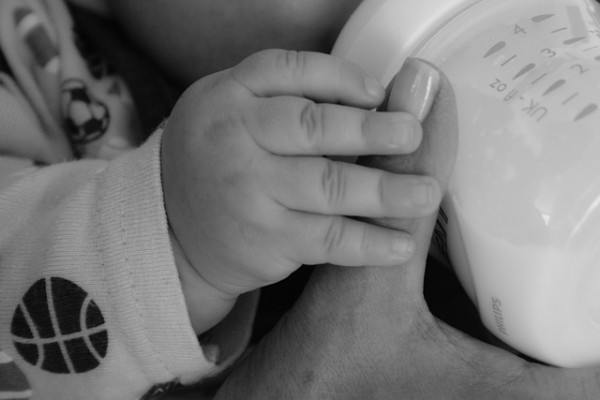New Study Finds Surgery for Benign Breast Condition Does Not Damage a Woman’s Ability to Breastfeed in the Future
Young women who have benign breast conditions may go through surgery sans, putting at risk their ability to breastfeed later on.
Recent reports said that one of the first studies to particularly assess the impacts of surgery on breastfeeding consequences and lactation capability exposes that over 80 percent of young female individuals successfully breastfed or bottle-fed breast milk, including women who have a history of breast surgery.
Findings from recent research were showcased as a clinical poster at the virtual American College of Surgeons Clinical Congress 2020.
Benign breast illnesses in women are common. Reports have it that almost one million women every year are diagnosed with benign breast conditions in the United States, and roughly 50 percent of them are likely to have benign breast lesion in their generation.
A lot of these conditions are typically managed with breast surgery. Other common procedures related to breast diseases comprise reduction mammoplasty for macromastia treatment, or "augmentation for breast asymmetry or developmental breast conditions." Macromastia is also known as "enlarged breast tissue."
ALSO READ: New Study Shows Breastfeeding Hormones Make Mothers Happier

According to the study, regardless of whether they had breast surgery before or not, 80 percent of women in the research were able to breastfeed or obtain breast milk for feeding through the bottle.
Apprehension Among Breast Surgeons
Despite the finding, there is an apprehension among breast surgeons about the probability of a surgical procedure that invades breast tissue to disrupt the delicate subareolar complex and impair milk ducts or nerves, and interfere with the future ability to breastfeed.
According to Boston, Massachusetts-based Boston Children's Hospital clinical research manager, Laura Nuzzi, BA, "Pediatricians and obstetrician-gynecologists who refer teenage patients" for breast disease treatment, as well as parents, are apprehensive that surgery may affect the development of the breast and its eventual lactation.
Meanwhile, studies about the link between breast surgery and breastfeeding capability later are limited. Clinical research associate, Shannon Malloy, BS, from the Adolescent Breast Clinic at Boston Children's Hospital, said there had been several cohort studies examining breastfeeding following surgery for "benign disease later on in life." However, they do not ask these questions in adolescents, as well as young women, before they have children.
Furthermore, Boston Children's Hospital researchers investigated the "ability to breastfeed ineligible mothers" whose age ranges from 18 to 45 years.
Their study compared the breastfeed's capability among women who had been formally diagnosed and undergone treatment for a breast condition with those who did not have such diagnosis and treatment.
DON'T MISS THIS: COVID-19 Update: Recent Developments Regarding the Infectious Disease
Research Finding
Of the total of 85 women who took part in the study, 15 participants had a prior history of breast conditions, which included breast cyst, fibroadenomas, or benign tumors and macromastia.
On the other hand, 16 women had breast surgery, which included breast augmentation, "reduction mammoplasty, and bioplasty.
Study authors said, regardless of whether they had breast surgery before or not, 80 percent of women in the research were able to breastfeed or obtain breast milk for feeding through a bottle.
Researchers continue to examine further the =link between "prior benign breast surgery and future lactation and breastfeeding performance," with a hope of having more data in the coming months.
Ms. Malloy emphasized they're hoping "to augment the conclusions from this study," suggesting plastic reconstructive surgeons, primary care professionals, and any provider coming in contact with women who have benign breast conditions can guarantee them that surgery for such a disease is safe and should not prevent them from enjoying the benefits of surgery for worry about damaging "future breastfeeding satisfaction and lactation."
IN CASE YOU MISSED IT: Case Report at Children's National Hospital Raises Concern for Resistance to Antibiotic
Check out more news and information on Breastfeeding on MD News Daily.
Oct 05, 2020 07:20 AM EDT





